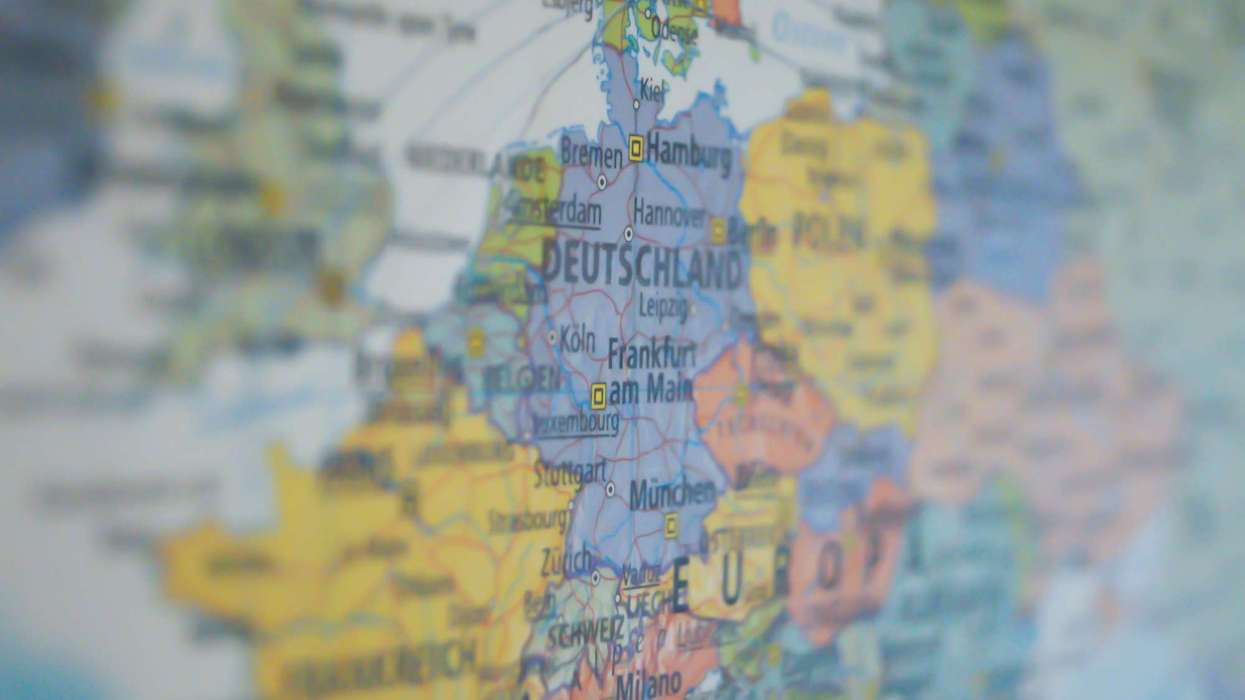Stay in a squalid refugee camp -- hopeless, starving, and made to feel a burden -- or leave, risking death, rape, human trafficking and months at sea to reach a husband you've never met.
This is the bleak choice many Rohingya women, already scarred from fleeing violent persecution in Myanmar, are now facing.
As conditions deteriorate in increasingly overcrowded Bangladeshi refugee camps, desperate parents are marrying off their daughters to Rohingya men thousands of kilometres (miles) away in Malaysia.
Wed by phone or video apps, the girls have little say in such unions and rely on occasional calls to build a relationship with their new partners as they begin treacherous journeys to reach them.
"My parents kept asking me to find a way to reach Malaysia -- living with them, I was just an extra mouth to feed," explained Jannat Ara, talking about her marriage to Nur Alam, a Rohingya man who lives in Kuala Lumpur.
She has seven other siblings, and the family had to share and survive on twice-monthly 25-kilogram (55-pound) rations of rice.
Ara has never met the man she married via phonecall from the refugee camp but, after mounting pressure from relatives to seek him out, decided to leave.
She is one of the thousands of Rohingya, who are stateless and cannot travel abroad legally, forced to put their faith in husbands they don't know and the people smugglers paid to transport them.
Her clandestine route took her via rickshaw to port, and from a small boat to a packed, dilapidated trawler.
But Malaysia denied it entry and "after floating at sea for two months and seeing many people die, we returned to the place where we started," the 20-year-old told AFP from the Bangladeshi camps.
- Absent grooms -
Arranged marriages are part of Rohingya custom, but in the Bangladeshi refugee camps, families have little income and struggle to afford the traditional dowries required.
Virtual weddings and international betrothals can seem an ideal solution.
At just 18, Somuda Begum was regarded as getting "too old" for marriage by relatives, and while proposals came from some families within the camp, they all demanded "a lot of money".
"My parents couldn't fix my marriage as my old father barely had any money to pay for a wedding. So he thought it would be better to send me to Malaysia instead," she said.
Begum, one of 11 children, was shown a photo of her prospective husband before the pair wed via video call -- her in-laws and an imam were present in her family's shack for the "ceremony", her fiance on screen with his friends.
But the journey into the unknown held some appeal.
"I often got frustrated hearing my mother and neighbours saying I was too old. I had no reason to say no. And deep inside I felt a bit happy that finally I would go and start my own family, away from this chaos," she said.
- Betrayed -
Begum's ageing father, Mohammad Ledu, entrusted her to a middleman who pledged that for 30,000 taka ($350) he would take her to Malaysia.
Instead, he took the money as soon she reached the boat and left her.
She never reached her husband -- turned away from its destination, the vessel drifted at sea for two months before the Bangladeshi coast guard rescued them.
"We all thought she would have a better life. But all these efforts were in vain. Now they won't even return the money we paid," Ledu said.
Charities warn that families in camps can be easily tricked, mistaking human traffickers and pimps for matchmakers offering brighter futures.
The increase in attempts at sailings is driven by desperation at life in the camps, where refugee numbers have swelled to almost one million since a 2017 military crackdown in mostly Buddhist Myanmar, said Chris Lewa, director of NGO the Arakan Project.
"Conditions in Bangladesh are getting worse, there are more restrictions on movement, more overcrowding," said Lewa, whose group tracks Rohingya boat journeys.
- Limbo, stigma -
Just over 100,000 Rohingya are currently registered with the United Nations in Muslim-majority Malaysia, but as they are denied citizenship, they remain in limbo.
The Rohingya men who have settled have few chances to assimilate -- as refugees they cannot legally work and so most take low-paid construction labour.
And while they may share a religion with about 60 percent of the population, they frequently face discrimination and harassment.
Most are unable to find local wives due to the stigma attached to marrying a refugee with few prospects or social standing.
"It's very hard to find a wife in Malaysia. Malays don't want to marry (us)," explained Mahumudul Hasson Rashid, who fled Bangladesh five years ago.
This shortfall of brides is driving the demand for women and girls from the Bangladesh camps.
Lonely men turn to relatives and matchmakers in the camps to organise unions, paying middlemen between $2,000 and $3,000 to smuggle in women by land and boat.
"We do worry about this, but there is no other way. There is no other option since we don't have passports," Rashid said.
- 'I know it's dangerous' -
Janu, whose husband is in Malaysia, insisted she knew of the dangers before embarking on the journey to join him.
"I know it is dangerous but I took the decision," the 18-year-old said, adding that while her marriage was arranged by her parents, she went voluntarily to start a new life.
But her journey turned out to be the stuff of nightmares.
Told the trip would take a week, she endured a 200-day ordeal as her crowded fishing trawler was blocked from landing in Malaysia and smugglers refused to release those on board until their relatives agreed to make extra payments.
"The captain told my husband that if he did not give money, he will torture and kill me and throw me into the sea," she said.
As a growing number of passengers perished and, with no hope of reaching their intended destination, the smugglers eventually cut their losses and dumped their human cargo in northern Indonesia.
Janu and about 300 others who survived the voyage now find themselves in another refugee camp in Lhokseumawe city but are hopeful that, once travel curbs are eased, they will be able to quietly cross to neighbouring Malaysia.
She says her fiancee sends money when he can, but conceded that "he has no plan to come here for me".
- Domestic violence threat -
Glorene Das, executive director of Tenaganita, an NGO that works with migrants and refugees in Malaysia, said that girls and women remain vulnerable even if they reach their destination.
The community is "very closed" and, while little formal data exists, she added that domestic abuse is "most definitely" a concern because the women have few rights and little access to outside help.
"We found cases of forced marriages and child marriages -- it was the parents' decision," Das said.
Once the marriage is formalised, Rohingya husbands are also expected to financially support their in-laws.
Amerah, 18, has not seen her fiance -- who is a construction worker in Malaysia -- since she was six.
"Since the marriage was arranged by my parents, I agreed. We cannot go beyond the opinion of our parents. I have not met my husband since the last time we saw each other when we were kids," she explained.
Their courtship was via WhatsApp and social media before she attempted to travel to join him.
The teenager expected seven days of sailing -- instead she and her fellow passengers were adrift for seven months, battling sickness and malnutrition. Many did not survive.
Eventually, the traffickers abandoned them in northern Indonesia.
Listless and alone, having swapped one refugee camp for another, Amerah has little hope for the future.
"I don't know when I will get married. I do almost nothing here," she said.
"I will follow whatever I am told to do."



